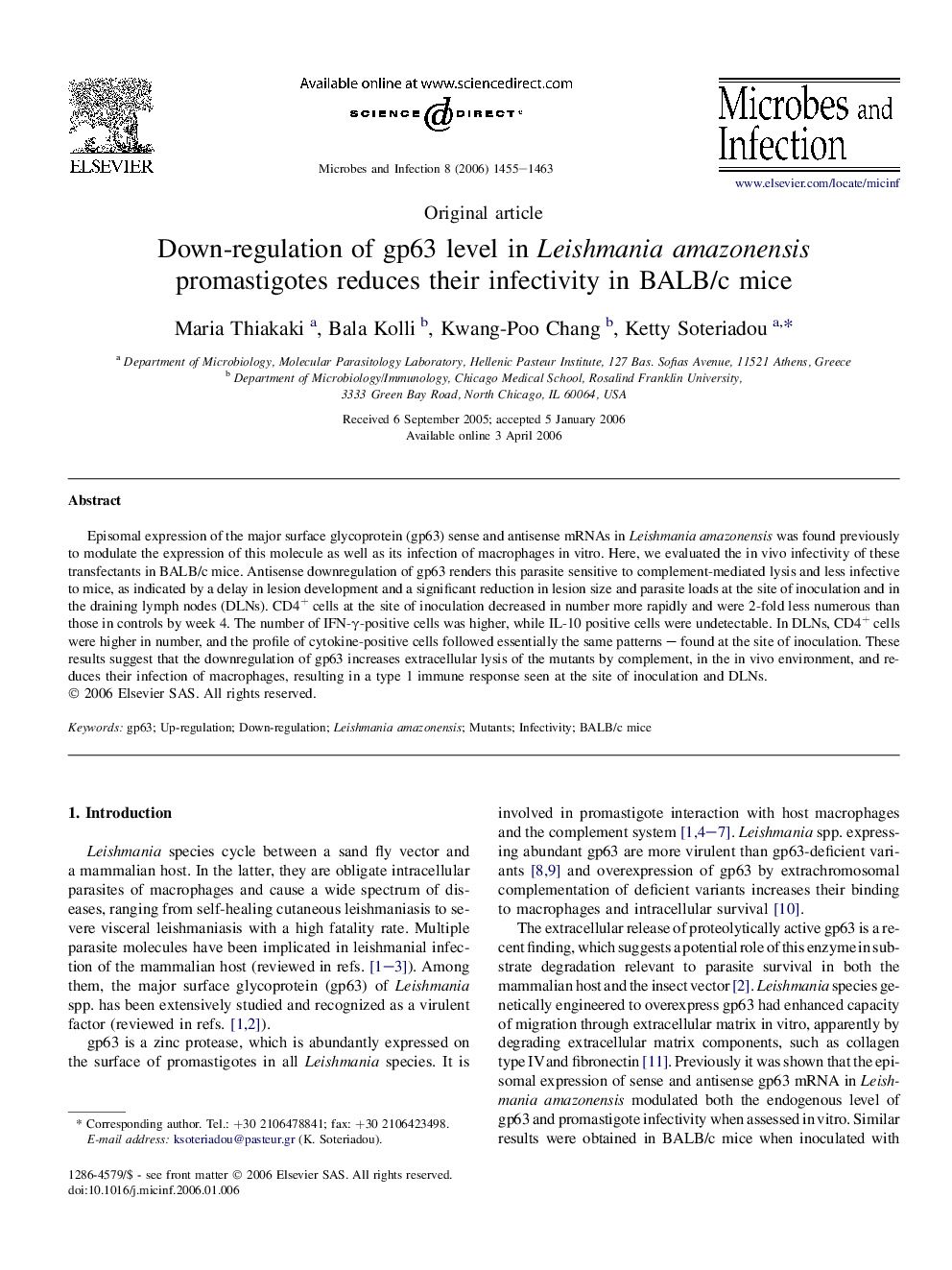| Article ID | Journal | Published Year | Pages | File Type |
|---|---|---|---|---|
| 3416035 | Microbes and Infection | 2006 | 9 Pages |
Episomal expression of the major surface glycoprotein (gp63) sense and antisense mRNAs in Leishmania amazonensis was found previously to modulate the expression of this molecule as well as its infection of macrophages in vitro. Here, we evaluated the in vivo infectivity of these transfectants in BALB/c mice. Antisense downregulation of gp63 renders this parasite sensitive to complement-mediated lysis and less infective to mice, as indicated by a delay in lesion development and a significant reduction in lesion size and parasite loads at the site of inoculation and in the draining lymph nodes (DLNs). CD4+ cells at the site of inoculation decreased in number more rapidly and were 2-fold less numerous than those in controls by week 4. The number of IFN-γ-positive cells was higher, while IL-10 positive cells were undetectable. In DLNs, CD4+ cells were higher in number, and the profile of cytokine-positive cells followed essentially the same patterns – found at the site of inoculation. These results suggest that the downregulation of gp63 increases extracellular lysis of the mutants by complement, in the in vivo environment, and reduces their infection of macrophages, resulting in a type 1 immune response seen at the site of inoculation and DLNs.
